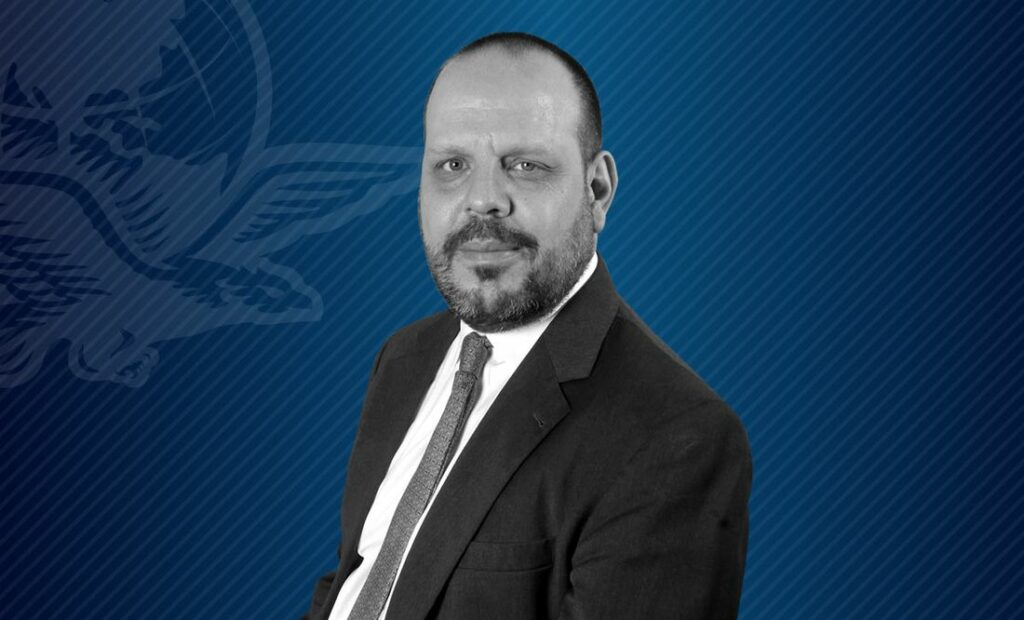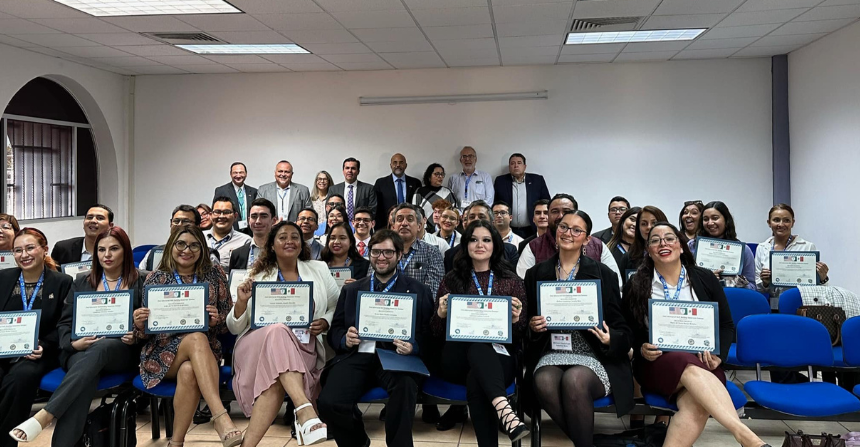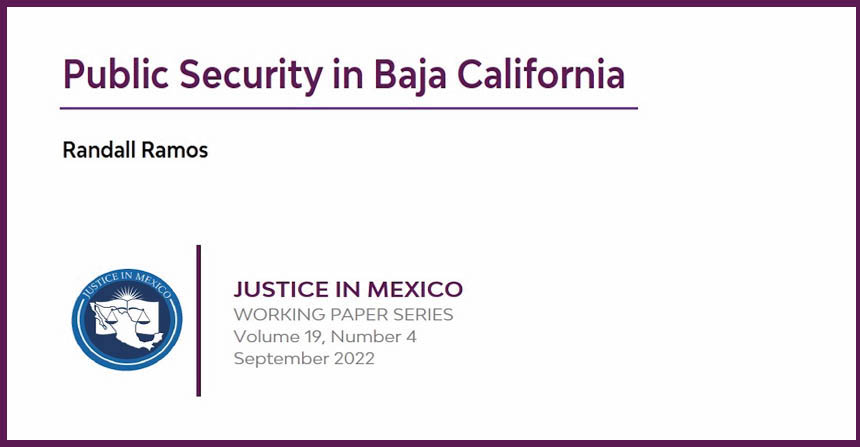 01/02/03 – On December 16, 2013, Justice in Mexico project director David Shirk participated in a forum on “Police Standards in Mexico,” co-hosted in Mexico City by the Centro de Investigación y Docencia Economicas and the Mexico Institute at the Woodrow Wilson Center. The forum focused on the challenges and strategies for increasing the professional capacity of Mexico’s police forces at the federal, state and local level. The discussion, led by CIDE’s Juan Salgado and Wilson’s Duncan Wood, drew insights from key policy makers and analysts from Mexico, the United States, Colombia, and Brazil on the challenges of police reform. Other participants included previous Justice in Mexico Project collaborators Mario Arroyo, Elena Azaola, and Daniel Sabet.
01/02/03 – On December 16, 2013, Justice in Mexico project director David Shirk participated in a forum on “Police Standards in Mexico,” co-hosted in Mexico City by the Centro de Investigación y Docencia Economicas and the Mexico Institute at the Woodrow Wilson Center. The forum focused on the challenges and strategies for increasing the professional capacity of Mexico’s police forces at the federal, state and local level. The discussion, led by CIDE’s Juan Salgado and Wilson’s Duncan Wood, drew insights from key policy makers and analysts from Mexico, the United States, Colombia, and Brazil on the challenges of police reform. Other participants included previous Justice in Mexico Project collaborators Mario Arroyo, Elena Azaola, and Daniel Sabet.
While police are the subject of much public criticism in Mexico, the public actually knows relatively little about the life, conditions, preoccupations, and aspirations of the average Mexican police officer. There are few independent surveys of police in Mexico, but they help to provide metrics of the capacities and weaknesses of the country’s law enforcement organizations. For example, Justice in Mexico’s Justiciabarómetro surveys in Guadalajara and Ciudad Juárez found significant frustration among officers because of the lack of clear, merit-based criteria for advancement on the force, and serious concerns about corruption in the corps. The day long forum provided an opportunity to examine the issue of police reform, with consideration of the administration of Mexican President Enrique Peña Nieto’s efforts to promote greater professionalization and standardization in federal, state, and local law enforcement.
Presently, there is a lack of continuity in many police agencies throughout the country, uneven preparation and professional capacity, and a lack of motivation and commitment due to weak civil service protections and poor compensation. There are also many challenges with ensuring transparency, accountability, and evaluation within police agencies. There is some hope for resolving these challenges. Recent political reforms in Mexico—such as allowances for re-election—may give public officials greater incentive to advocate more effective policies over the long term. The federal government has increasingly channeled subsidies to state and local law enforcement agencies through programs like FASP and SUBSEMUN, and has sought to introduce protocols for vetting or “control de confianza.” The Peña Nieto administration has also emphasized greater coordination between federal and state law enforcement agencies, and has emphasized the need to further centralize and homogenize police standards.
Part of the solution may also lie in looking at what has worked in states and localities that have succeeded in restoring public order after periods of intense violence, such as Tijuana, Ciudad Juárez, and Monterrey. Ultimately, however, the best quality control for police may be the new adversarial criminal justice system and recent constitutional reforms to Mexican human rights laws that will hold police more accountable to follow proper procedure, present evidence in court, and respect the basic rights of the accused.





The completion of the process for vetting police has again been postponed, implementation of the adversarial justice system is limping along at best and the National Human Rights Commission reports no lowering of reported abuses by police in Peña Nieto’s first year. This is progress?